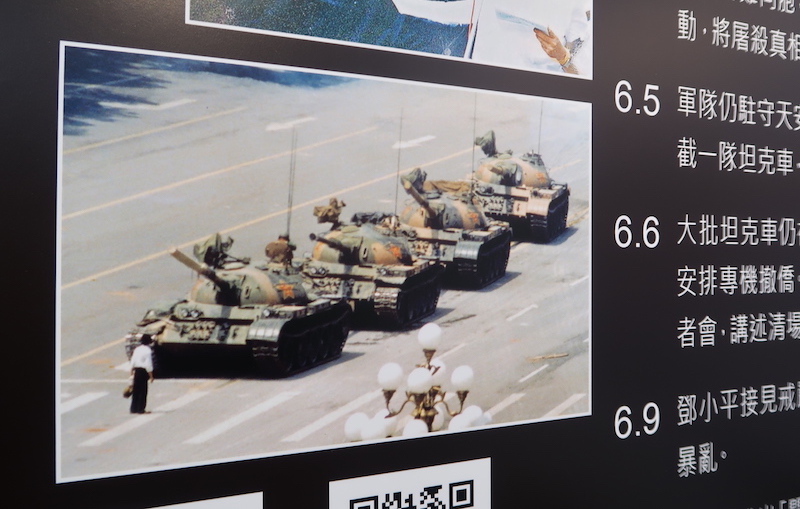
Recently released records seen by HKFP show that Britain was willing to extend the stay of Chinese students studying in the UK after the Tiananmen Massacre on June 4, 1989, though the prime minister said they should eventually return to China “to help build a better society there.”
Then-UK leader Margaret Thatcher met with five Chinese students on behalf of the Chinese Students and Scholars Association on the morning of June 28.
A day before the meeting, the Foreign and Commonwealth Office (FCO) told Downing Street that the Association claimed to speak on behalf of all 3,500 or so Chinese students and scholars in the UK.

“Our understanding is that there are at present some 205 officially sponsored Chinese students in the UK who are due to return to China by 1 October,” the FCO document read.
It advised Thatcher to reiterate that the UK shall “look sympathetically” upon any applications from Chinese nationals who were in the UK on June 4, and who did not wish to return to China “for the present.”
It also advised Thatcher to tell the students to go to the Home Office for a six month extension: “Home Office ministers have already informed the universities and colleges about this.”

The FCO gave further details on issues such asylum and work restrictions for the students.
“If appropriate, the Home Office will remove employment restrictions… They would also be eligible for free medical care,” the document read.
The records were part of a set of Home Office documents on the issue of British citizenship which were declassified last year. They are available to the public at the National Archives in Kew, London.
The names of the five Chinese students were redacted in the 10 Downing Street document.
“Most of those attending the meeting had been activists in the democratic cause and were likely to face persecution if they returned to China; the same applied to many of their fellow students in the United Kingdom,” Thatcher’s private secretary Charles Powell wrote on June 28.
The bloody crackdown in 1989 ended months of student-led demonstrations across China. It is estimated that hundreds, perhaps thousands, of people died when the People’s Liberation Army was deployed to clear protesters in Beijing.

According to the document, Thatcher followed the FCO’s advice.
“Anyone whose visa was due to expire should apply to the Home Office for an extension. Application would be treated in confidence,” it read. “We were also willing to issue travel documents to those whose passports were about to expire and who were unwilling to apply to the Chinese authorities for their renewal.”
“In cases of genuine financial difficulty, the Home Office would be prepared to remove employment restrictions.”
Powell said the delegation were “well satisfied with these assurances.”
However, he noted that one or two students raised questions about a longer term future in the UK.
“Those who had been most active in demonstrations were likely to find it hard to return to China so long as the present regime lasted. In those circumstances, would they be able to have permission for an extended stay in the United Kingdom?” Powell recorded the students asking.

Thatcher said in response that, as Powell wrote, “she thought they should see their future in terms of returning to China to help build a better society there.”
“Applying for political asylum was a major step and should only be done after the most careful consideration,” the document continued. “The delegation made clear that they were not thinking in terms of asylum, but of permission to stay until conditions in China changed.”
Thatcher was recorded as saying that it would be looked at on a regular basis when it came to renewing visas.
Powell also wrote that they had not given any names to the media.
